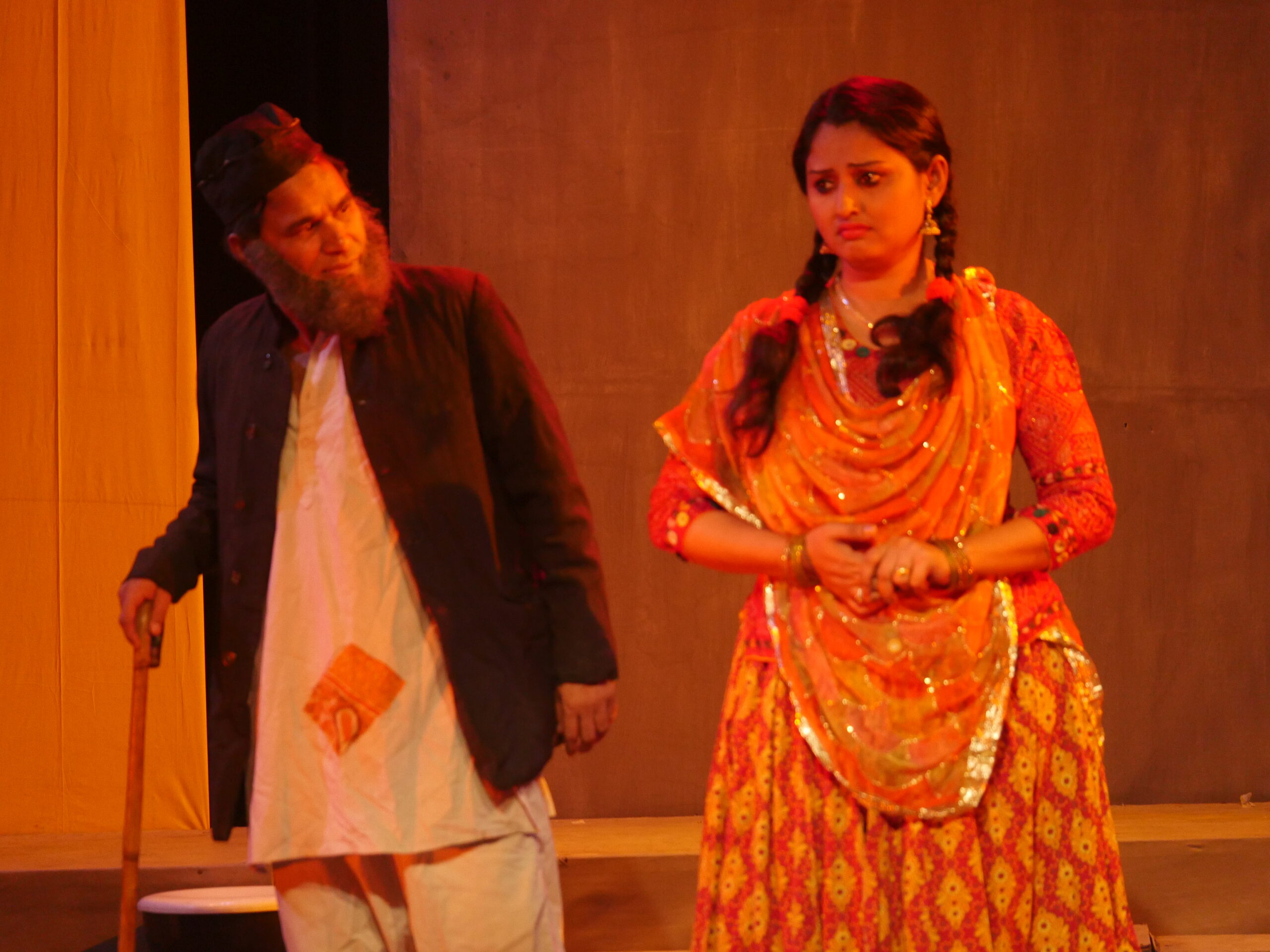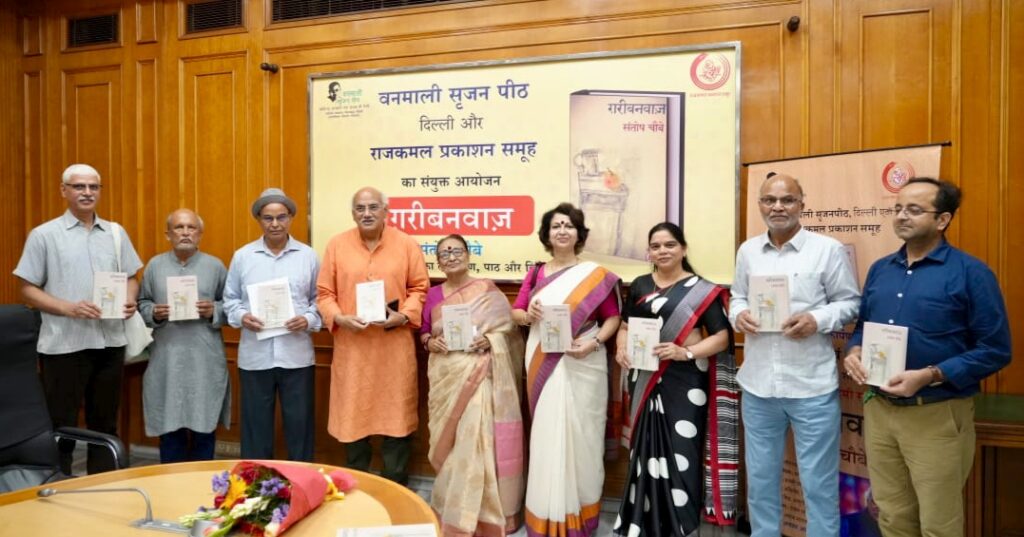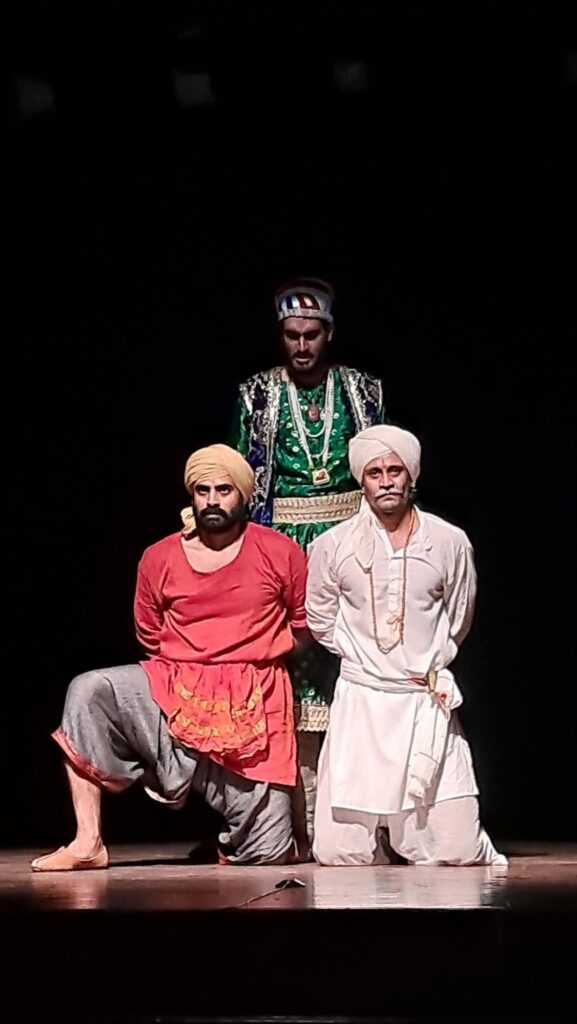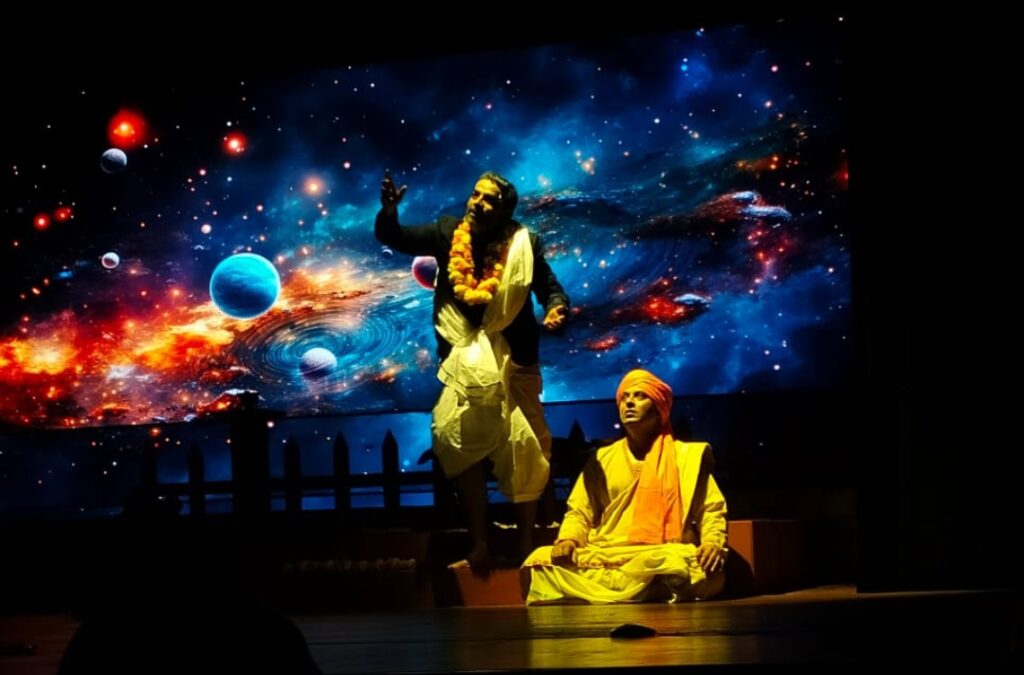A Theatrical Ode to the Stories of Santosh Choubey
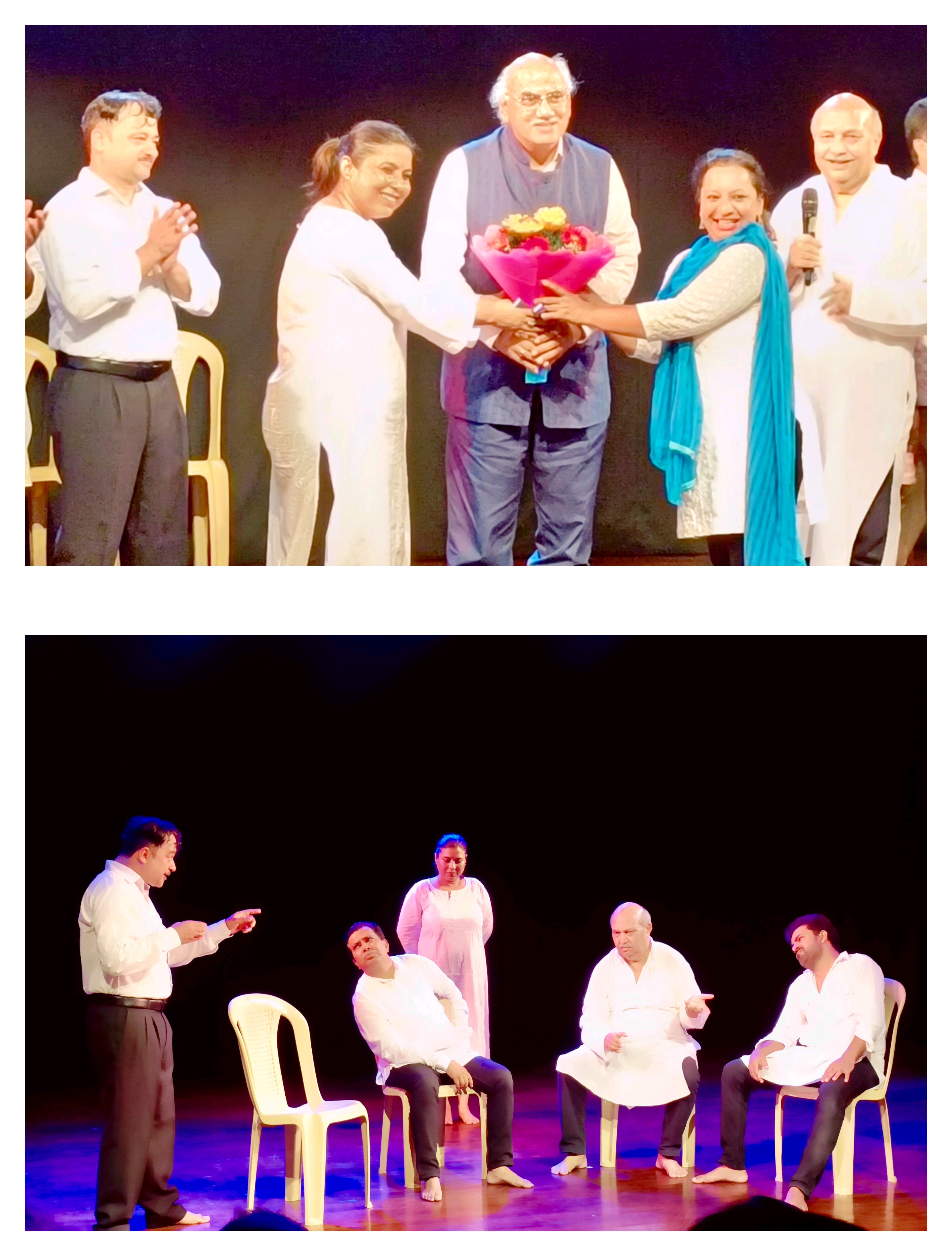
A celebration of Santosh Choubey’s literary world on stage
New Delhi, September 5, 2025. The Sammukh Auditorium at the National School of Drama (NSD), New Delhi, witnessed a powerful confluence of literature and theatre with the staging of two acclaimed stories by Senior Poet–Novelist, Director of Vishwarang, and Chancellor of Rabindranath Tagore University, Sh. Santosh Choubey—*Unke Hisse Ka Prem* and Garibnawaz. The plays were directed by veteran theatre director Devendra Raj Ankur and presented by Sambhav Art Group, Delhi, under the aegis of Vanmali Srijan Peeth.
Sh. Santosh Choubey, celebrated for his profound and sensitive contribution to Hindi literature and theatre, has carved a niche through his exploration of human emotions and the complexities of contemporary society. His stories, marked by simplicity of language and depth of expression, continue to inspire both readers and performers.
In Unke Hisse Ka Prem, the fragmented relationships and emotional struggles of an institutional boss are revealed through the unique perspectives of inanimate objects—his desk, pen, chair, diary, and mirror. By transforming these objects into living witnesses, Shri Santosh Choubey’s pen captures the poignancy of solitude and the delicate nuances of human vulnerability.
Garibnawaz, on the other hand, starkly contrasts capitalist success with the resilience of the working class. The clash between Vishwamohan’s opulent BPO office—symbol of globalized affluence—and the modest yet spirited Garibnawaz Chicken Shop next door, becomes a metaphor for the strength of labor and grassroots survival. Here, Sh. Santosh Choubey incisively exposes the paradoxes of urban politics, unauthorized encroachments, and local power nexus.
The stage came alive through remarkable performances by Nidhi Mishra, Gauri Dewal, Rachita Verma, Amitabh Srivastava, Amit Saxena, Prakash Jha, Harikesh Maurya, and Sahaj Harjai. The evocative musical design by Rajesh Singh and Sahaj Harjai, complemented by the lighting design of Raghav Prakash Mishra, intensified the impact of the narratives. The evening was skillfully anchored by Vikrant Bhatt, Associate Director of Tagore Theatre School.
Adding a visual dimension, an exhibition based on the works and books of Shri Santosh Choubey was curated by Prashant Soni, Vikrant Bhatt, Upendra Patne, and Yogesh Kumar. The Sammukh Auditorium was packed with an enthusiastic audience, who responded with admiration for this rare blending of literature and performance.
Without relying on elaborate sets or theatrical gimmicks, the evening reaffirmed that the strength of theatre lies in the richness of writing and the precision of direction. The pen of Sh. Santosh Choubey and the direction of Devendra Raj Ankur together proved that great stories are as alive on stage as they are in the imagination of the reader.
